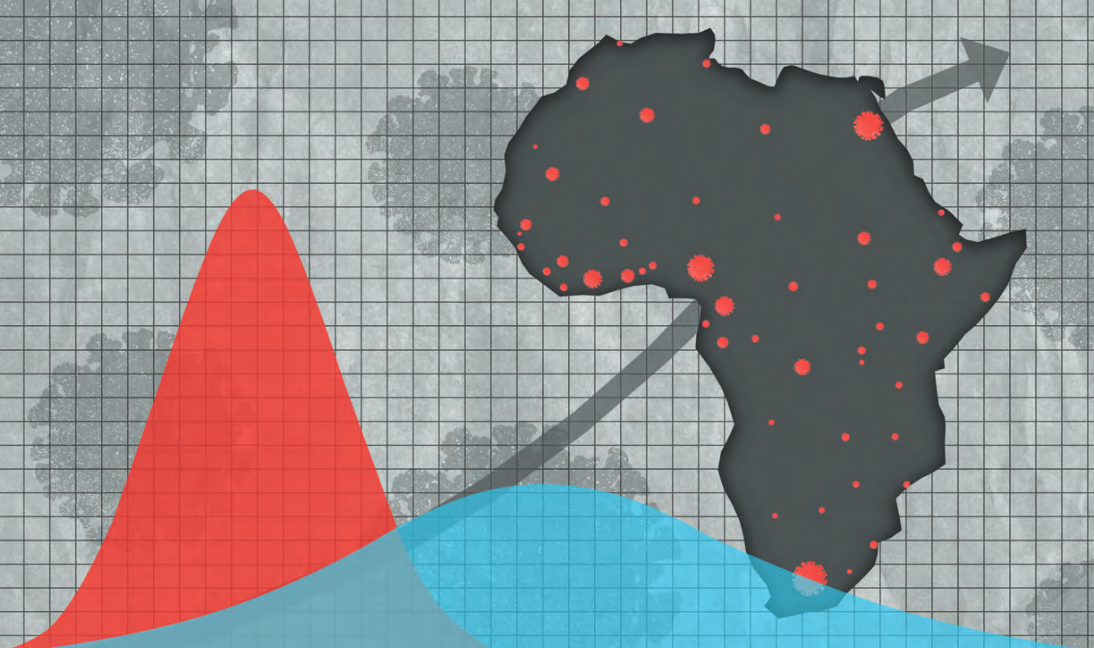
This is a guest blog post from Institute for Security Studies, an African organization which enhances human security by providing authoritative research, expert policy advice and capacity building. HU has been a supporter in the creation of a report exploring the impact of COVID-19 in Africa.
The World Health Organization (WHO) acknowledged COVID-19 as a Public Health Emergency of International Concern on 30 January 2020. Early efforts to contain the spread through travel restrictions, lockdowns and market closures have played an important role in constraining rates of infection in many African many countries, but have taken a heavy social and economic toll.
With support from Humanity United and the Hanns Seidel Foundation, we recently conducted an analysis of the potential impact of the COVID-19 pandemic on Africa—looking at the impact on income, debt, poverty and the attainment of some elements of Sustainable Development Goals through 2030. Based on three scenarios, the findings indicate that the pandemic is set to erase much of the development progress made in Africa in recent years.
Specifically, the findings reveal that Africa’s economy will be between US$349 billion and US$643 billion smaller in 2030 compared to the pre-COVID-19 forecast. In the best-case scenario, GDP per capita will recover to 2019 levels in 2024. In the worst case, Africa will only return to 2019 levels in 2030.
The efforts to roll out additional social grants in a number of African countries to mitigate the impact of the pandemic will marginally reduce extreme poverty and income inequality in the short term. Relative to the pre-COVID-19 forecast, 14 million additional Africans will be extremely poor in 2020. In 2030, an additional 38 to 70 million more people would be classified as extremely poor. This translates to poverty rates of 35% to 37% of Africa’s total population.
COVID-19 is set to further constrain Africa’s progress towards attaining the 2030 Sustainable Development Goals. The pandemic is expected to significantly reduce government revenue, health expenditure, and undermine debt sustainability in a number of African countries. In the worst case, more people will have died from the impact of reduced health expenditure and hunger by 2030 than from COVID-19.
The report presents some recommendations for action: Firstly, Africa faces an emerging debt crisis that will require a moratorium and likely some debt forgiveness. Secondly, Africa needs to increase health spending and rectify the poor access to basic infrastructure. On average, only 40% of citizens in Africa have access to improved sanitation vs 80% in the rest of the world. With clean water, the ratios are 78% vs 97%. Finally, the COVID-19 pandemic underlines the need for greater efforts towards the transformation of African economies for more sustained and inclusive growth.
You can find the full report here: https://issafrica.org/research/africa-report/impact-of-covid-19-in-africa-a-scenario-analysis-to-2030
The Institute for Security Studies partners to build knowledge and skills that secure Africa’s future. Their goal is to enhance human security as a means to achieve sustainable peace and prosperity. With offices in South Africa, Kenya, Ethiopia and Senegal, their work covers transnational crimes, migration, maritime security and development, peacekeeping, peacebuilding, crime prevention and criminal justice, and the analysis of conflict and governance. Using their networks and influence, they provide timely and credible analysis, practical training and technical assistance to governments and civil society to promote better policy and practice.
Learn more about ISS here: https://issafrica.org/